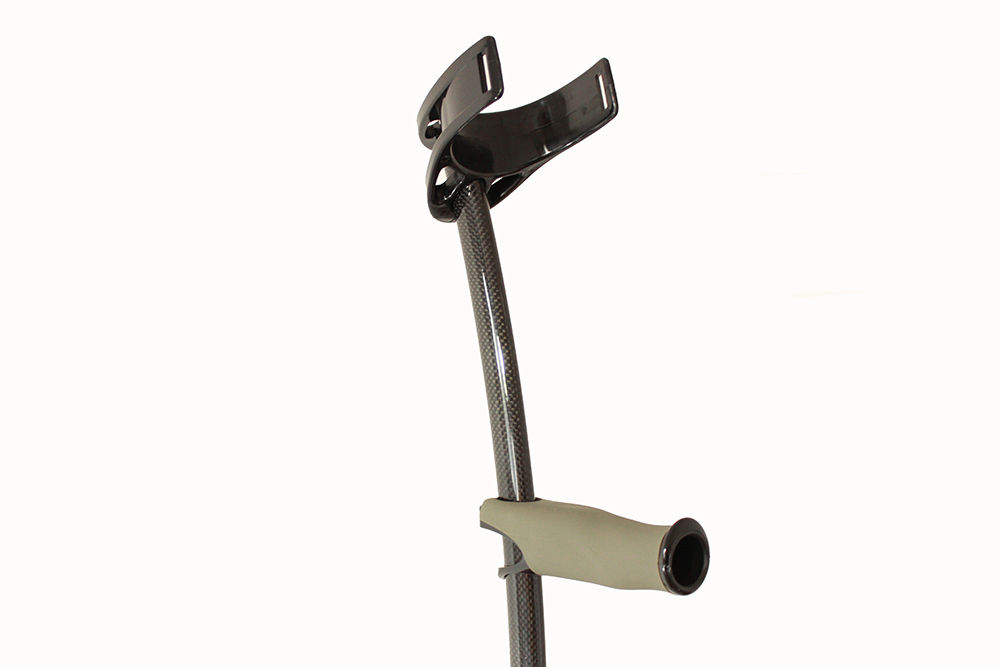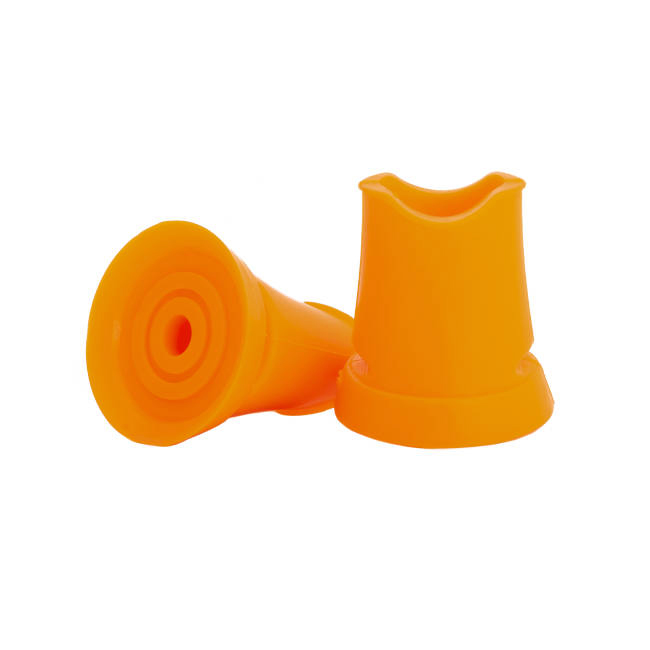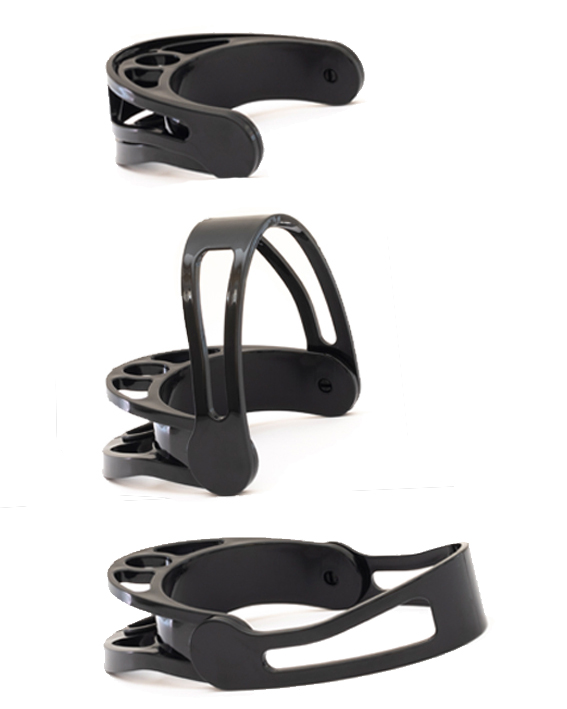How to properly adjust your crutches?
Using your crutches properly is key to ensuring comfort, safety, and effective rehabilitation. Incorrect adjustment can lead to pain or injury. Whether you're using aluminum or carbon fiber forearm crutches, it’s essential to maintain an ergonomic and stable position. This guide explains how to adjust your crutches and why it matters.

Crutches or forearm canes
Crutches are crucial when one can’t bear weight on both legs (sprain, amputation, knee or ankle surgery...) or for issues with balance or paralysis. In the latter case, a forearm cane may also help.
You can find these walking aids online or in pharmacies, but always check their ergonomics, adjustability, and quality.
Structure of crutches
Forearm crutches, also known as English canes, consist of a shaft, cuff, handle, and tip:
- Tube: must be adjusted to your height. Proper height is vital to avoid pain or falls.
- Cuff: should sit comfortably just below the elbow. It’s essential for comfort.
- Handle: an ergonomic handle prevents tendinitis. High-end models offer added comfort.
- Tip: non-slip and durable — should be checked regularly.
Also, verify the maximum weight capacity — not all crutches are equally strong.
How to properly adjust your crutches
Proper adjustment helps avoid shoulder, wrist, and arm pain. Key tips:
- The handle should align with your wrist when arms are relaxed.
- The cuff should rest just below the elbow without pressing on the bone.
- Keep arms slightly bent during use.
Improper adjustment can lead to chronic pain and may require medical follow-up. Well-adjusted crutches are essential for safe walking.
Not all crutches allow precise adjustment, which can lead to tendinitis and even surgery...
INDESmed forearm crutches: millimeter-precise adjustment
INDESmed’s patented crutches allow millimeter precision in adjusting the cuff and handle — adapting perfectly to each user.
Two models:
- Carbon fiber crutches: the world’s lightest and highly resistant. Weigh only 220 g and support up to 200 kg.
- Aerospace aluminum crutches: ultra-light at 400 g, supporting up to 140 kg.
More info: https://www.indesmed.com/crutches.php
FAQ
Online, in specialized stores, or pharmacies. INDESmed models are sold on their official site.
What’s the price of crutches?
Depends on material (aluminum, carbon), ergonomics, and brand. Premium models cost more but are lighter and more durable.
Are all crutches suitable for heavy users?
No. Some support 100–140 kg, while INDESmed models go up to 200 kg. Always check the specs.
info@indesmed.com


